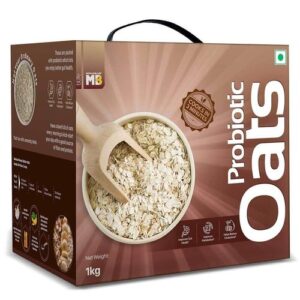What is whey protein?
Whey protein refers to a crew of eight proteins discovered in milk. These proteins, in order from the largest to smallest quantities in milk, are:
- Beta-lactoglobulin.
- Alpha-lactalbumin.
- Glycomacropeptide.
- Immunoglobulins.
- Bovine serum albumin.
- Lactoferrin.
- Lactoperoxidase.
- Lysozyme.
Manufacturers add enzymes to milk in the cheese-making process. The enzymes curdle the milk, which separates the liquid whey from milk’s strong curds. The curds, which comprise most of the milk’s fat, are the important ingredient in cheese.
When the strong curds are removed, you’re left with watery whey protein, which has various quantities of lactose (milk sugar) and fat. Usually, producers pasteurize the whey to kill microorganism and then dry it. Voila! Whey protein powder.
Types of whey protein:
Whey protein then undergoes every other system to make one of three important types:
- Concentrate: Products with whey protein pay attention to fluctuation extensively in their protein, lactose, and fats content. Whey protein listen is in many protein drinks, bars, and dietary products. It’s additionally used in baby formula.
- Isolate: This kind is persistently excessive in protein and low in fats or lactose. You may additionally see it listed on the labels of protein supplements, such as bars and drinks. Whey protein isolate can also be an appropriate preference for human beings who are lactose illiberal — however, don’t strive for any of these if you have a milk allergy.
- Hydrolysate: Also acknowledged as hydrolyzed whey protein, whey hydrolysate is the best to digest. It’s mild on digestion due to the fact its lengthy protein chains, known as peptides, are pre-broken down into shorter ones. Specialized toddler formulations frequently use hydrolyzed whey protein. You may also additionally see it in scientific dietary supplements for dietary deficiencies.
Amino acids and whey protein:
Whey protein is an entire protein, containing all 9 vital amino acids. “Amino acids are vital for many features in the body, from constructing muscle to developing new immune cells,” says Smith.
Your physique makes many amino acids on its own, however now not imperative amino acids. You have to get vital amino acids via your diet, and ingesting whey protein is one way to do that.
But don’t bargain “incomplete” proteins. Most plant proteins, like legumes and nuts, don’t comprise all the necessary amino acids. But they have masses of fitness benefits. When you consume a range of incomplete proteins, you get greater than adequate fundamental amino acids to meet your body’s needs.
Benefits of whey protein:
Whey protein might also be beneficial for:
- Muscle building: Muscles love protein, mainly whole proteins like whey. “Whey protein consists of branched-chain amino acids, a unique kind of amino acid that helps with muscle building,” Smith says.
- Wound healing: The amino acids in whey protein assist restore pores and skin and tissues from wounds or surgery.
- Weight obtains and dietary boost: People who want to reap weight can gain from whey protein. It’s additionally beneficial if a character has a long-term sickness and desires more nutrition. “If you can’t get sufficient protein from entire meal sources, a whey protein complement can help,” says Smith. “It’s really helpful for humans who have to chew or swallowing problems or a lack of appetite.”
A side effect of whey protein:
Whey protein is commonly protected for most humans to take, as long as they don’t have a dairy allergy. But there are some drawbacks:
- Calorie content: Whey protein can also be low fats and low carb; however, it nonetheless has calories. “Too much energy from anything, along with protein, leads to weight gain,” Smith explains.
- Extra sugar or processed ingredients: Many protein powders and shakes comprise processed elements like synthetic flavors, sweeteners, or brought sugar. “It’s higher to get your protein from entire meals and a varied diet, as a substitute than a supplement, bar or shake,” says Smith. “If you use a supplement, seem for one that lists whey protein as the sole ingredient.”
- Possible contaminants: Protein dietary supplements don’t have strict rules like ingredients and drugs. “The purity may no longer be confirmed in some protein supplements,” says Smith. “They can have fillers or heavy steel contaminants that aren’t listed on the label.” Choose whey protein merchandise that is NSF Certified for Sport or licensed via Informed Choice. These merchandises have been independently examined for purity.
- Possible digestive problems: Some humans trip constipation, diarrhea, or nausea from taking whey protein, especially if they take massive amounts.

